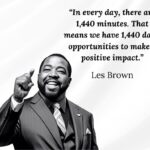In a world driven by relentless innovation and shifting paradigms, one simple statement from Jeff Bezos slices through the noise with startling clarity:
“What’s dangerous is not to evolve.”
It’s easy to mistake this quote for yet another motivational poster or corporate cliché. But behind these six words lies a brutal truth—one that has shaped the rise and fall of empires, both commercial and cultural. Whether you're leading a Fortune 500 company or freelancing from a corner café, the message is the same: evolve or risk extinction.
The Comfort Trap
Human beings crave comfort. We love routines, traditions, and familiar patterns. The same is true for businesses and institutions. Once we find something that works—be it a product, strategy, or belief—we tend to clutch it like a life raft, fearing the unknown waters beyond.
But comfort, while soothing, is often the enemy of progress. Evolution—whether biological, technological, or personal—only happens when we are willing to question what we know, risk what we have, and push toward what could be.
Jeff Bezos didn’t build Amazon into a trillion-dollar empire by clinging to the status quo. In fact, Amazon’s story is a masterclass in constant evolution: from online bookstore to the world’s largest e-commerce platform, from cloud computing giant to AI innovator. At every stage, Bezos made bold, often controversial decisions that disrupted comfort zones. Why? Because he understood that staying still in a fast-moving world is more dangerous than moving forward and making a few mistakes along the way.
Evolution Is Not Optional
Here’s the harsh reality: evolution isn’t a choice anymore. It’s a survival skill.
Think of Kodak. Once a titan in the photography industry, Kodak actually invented the digital camera in 1975. But rather than evolving with the times, they buried the technology, afraid it would eat into their film sales. The result? Obsolescence.
Blockbuster had multiple chances to buy Netflix in the early 2000s. They passed, believing streaming was a passing fad. We all know how that turned out.
These aren’t just business cautionary tales. They’re warnings etched into the walls of history: evolve, or be left behind.
Personal Growth: The Hidden Message
While Bezos was speaking to business leaders and innovators, his quote has profound implications on a personal level too. In an era defined by AI, automation, and remote work revolutions, evolving isn't just about learning new software or tools. It’s about transforming how we think.
Are you upgrading your mindset as quickly as the world is upgrading its technology? Are you flexible enough to pivot when the environment demands it? Or are you stuck in an identity you forged 10 years ago, wondering why the world no longer makes sense?
To evolve means to shed your skin often, to rewrite your story when necessary, to let go of beliefs that no longer serve you—even if they once made you successful.
The Illusion of Stability
One reason evolution feels “dangerous” is because it’s uncertain. Change brings chaos, risk, and discomfort. But as Bezos hints, the real danger lies in perceived stability.
Standing still might feel safe today, but it guarantees vulnerability tomorrow.
Consider industries like retail, journalism, music, or education. Each one has been upended by technology. Institutions that refused to evolve have crumbled. Those that adapted—like Shopify, Substack, Spotify, and edtech platforms—have not just survived; they've thrived.
Evolution isn’t reckless disruption. It’s strategic adaptation. And it often rewards those with courage over those with caution.
Building an Evolutionary Mindset
So how do you evolve without losing your identity? How do you balance growth with authenticity?
Here are five core principles inspired by Bezos’ philosophy:
- Embrace Long-Term Thinking
Evolution is not about quick wins. Amazon took years before it became profitable. Build with the next 5, 10, or 20 years in mind—not just the next quarter. - Experiment Relentlessly
Bezos famously said, “Our success at Amazon is a function of how many experiments we do per year, per month, per week, per day.” Evolution thrives on iteration. Test new ideas, embrace failure, and course-correct fast. - Stay Customer-Obsessed
Evolution should serve others. Listen deeply. Anticipate needs before they're voiced. That’s how you stay relevant. - Hire (and Be) Lifelong Learners
The companies—and individuals—that evolve are the ones that never stop learning. Be humble enough to admit what you don’t know and curious enough to explore what you haven’t tried. - Destroy Your Own Success Formula Before Someone Else Does
Don’t wait for the market to disrupt you. Disrupt yourself first. Reinvent your best products, question your best practices, and outgrow your own legacy before it's too late.
A Future Built on Change
Bezos’ quote is not just a warning; it’s a rallying cry for innovators, creators, and anyone who wants to remain relevant in a rapidly changing world. “What’s dangerous is not to evolve” means that the real risk is staying the same when everything else is changing.
We are no longer in an era where evolution is something that happens over decades. Change now arrives in quarterly updates, viral trends, or overnight breakthroughs. The half-life of expertise is shrinking. If you’re not growing, learning, and adapting—you’re falling behind.
And while that may sound intimidating, there’s good news: you are allowed to evolve. In fact, you are expected to.
You’re allowed to pivot your business model. To change careers. To rewrite your goals. To challenge old beliefs. To become a new version of yourself every few years.
Because not evolving? That’s what’s truly dangerous.
Final Thoughts
Jeff Bezos’ quote is deceptively simple but profoundly urgent.
We live in a world where every industry, every role, every system is being reshaped in real-time. Those who view change as a threat will struggle. Those who see it as a tool will thrive.
So here’s the question we must all ask ourselves regularly:
What part of me—or my business—needs to evolve right now?
The future doesn’t belong to the biggest, the smartest, or even the fastest.
It belongs to the most adaptable.
And that’s not just business advice.
That’s survival.






